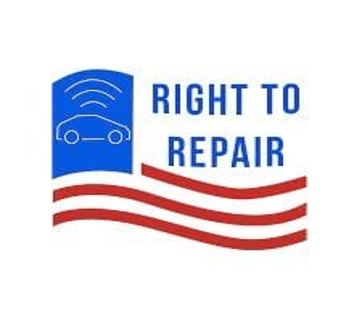By: Peter Shanley
As voters across the United States contemplate their stance on various issues in anticipation of the national election on November 3rd, Massachusetts voters have to add one more to their list. “This is really a fight for Massachusetts consumers. Without this information, people may lose the choice to bring their car to an independent repair shop.” With this statement, Tommy Hickey, the director of the Massachusetts Right to Repair Coalition, has issued a rallying cry to voters in his state. This fight that Hickey refers to is centered on Massachusetts Question #1, a ballot initiative referred to as the “Right to Repair Law” Vehicle Data Access Requirement Initiative. A “yes” vote on this question will support requiring manufacturers that sell vehicles with telematics systems in Massachusetts to equip them with a standardized open data platform beginning in model year 2022. This open data platform will enable vehicle owners and independent repair facilities to retrieve mechanical data and run diagnostics through a mobile-based application. The Right to Repair Coalition is comprised of owners of Massachusetts based independent repair shops who believe that the original Right to Repair statute, which was established in 2013, needs to be revised. A revised statute will close loopholes that have been placing these repair shops and consumers at a disadvantage. The Right to Repair Coalition has been gaining support for this ballot initiative for over a year, gaining approximately 150,000 signatures for the legislation, far surpassing the 80,239 signatures required to get the question on the ballot.
Under the current law, telematics systems are exempt from accessibility by car owners and independent repair facilities. So, the disadvantage the Coalition is concerned with presents itself when a telematics system needs an update or a repair, but it may only be accessed by the brand manufacturer. This restricted access limits a car owner’s ability to choose where the system can be updated or repaired. But what exactly is a telematics system? In short, a telematics system monitors a vehicle, by combining a GPS system with on-board diagnostics. It operates by recording and mapping exactly where a car is and how fast it’s traveling, and then cross referencing that information with how a car is behaving internally. It is then also possible to link a vehicle’s own telematics system through communication over a 3G network, allowing for data to go back and forth between a vehicle and a central management system.
The driving force behind the Right to Repair statute in 2012 and the proposed revisions today is expanding consumer choice. In 2012 the proposal presented to the Massachusetts Attorney General for consideration required automobile manufacturers to provide non-proprietary diagnostics and the safety information required to repair their vehicles directly to consumers. Even though the question was already on the ballot in 2012, a last-minute legislative compromise on the final day of session for the Massachusetts State Legislature put the Right to Repair statute into law before the voters had their say. The Right to Repair Coalition reacted to this legislative move by pushing forward with its campaign for a more stringent ballot initiative, thereby rejecting the negotiated legislation. The initiative received overwhelming support from voters passing with 86% in favor.
Currently, the opposition to the initiative is being organized by the Coalition for Safe and Secure Data, led by Connor Yunits. Yunits and his coalition are concerned about the privacy implications for individuals if the initiative is passed. Yunits claims that “[t]his ballot question will create easy opportunities for strangers, hackers and criminals to access consumer vehicles and personal driving data – including real-time location. . .It will put people at risk, without doing anything to improve the consumer experience.” Both sides of the debate seem to be highly concerned with the common consumer, with the “Right to Repair” group advocating for choice in where a vehicle may be repaired, while the “Secure Data” group is worried about the privacy implications if the initiative is passed.
To address the potential implications of the passage of Question #1, the Massachusetts Joint Committee on Consumer Protection and Professional Licensure requested testimony from the National Highway Traffic Safety Administration (“NHTSA”) on the matter. The deputy of the NHTSA, James C. Owens, submitted a letter to the Committee where he recommended that vehicle manufacturers should deliver, “strong vehicle cybersecurity protections that do not unduly restrict access by authorized alternative third-party repair services.” Owens also argued that the initiative behind Question #1 was lacking any type of strategy on how to handle cybersecurity risks and mandated a rapid timeline for manufacturers to implement the change safely. While consumer choice is a significant concern, it is important to recognize that the “Right to Repair” coalition is primarily made up of owners of independent autobody shops who are most likely motivated to pass this initiative for financial gain. If Owens is correct in his argument that the timeline under the initiative is too fast and that there are not enough safeguards in place to ensure the protection of an individual’s data within their vehicle’s telematics system, there could be far-reaching consequences beyond not being able to choose a cheaper autobody repair shop.
While early polls have the Right to Repair coalition winning the battle, both sides will surely continue to advocate for their views until Election Day. The efforts of both coalitions should be applauded, as it is crucial that constituents understand the implications of an initiative and do not strictly rely on the paragraph-long question that appears on their ballot.
Student Bio: Peter Shanley is currently a 2L at Suffolk University Law School, and graduated from Providence College in 2019 with a B.S. in Political Science and Global Studies.
Disclaimer: The views expressed in this blog are the views of the author alone and do not represent the views of JHTL or Suffolk University Law School.

